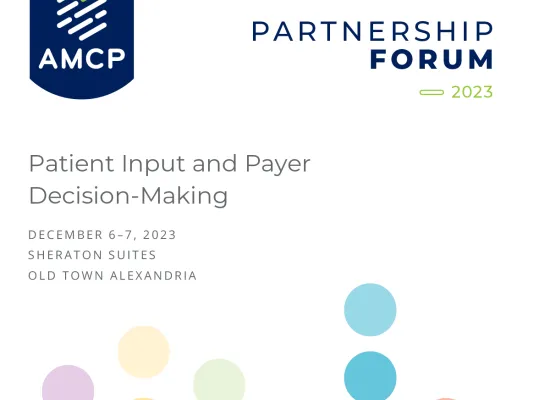
Summit on Immunoglobulin
Findings from an AMCP Market Insights Program
Immunoglobulin (IG) derived from the plasma of donors is used in the treatment of an array of disorders, including primary and secondary immune deficiency states and a variety of autoimmune and inflammatory disorders. There has been a rapid expansion in the use of immunoglobulin for an ever-growing number of conditions requiring additional understanding and coverage criteria for payers. Payers have numerous options to ensure immunoglobulin is used appropriately for the right patient in the right setting. These include formulary management, site-of-care programs, education for providers and patients, switching preferred products (e.g. IVIG to SCIG), preauthorization policies limit prescribing to select medical specialties, implementation of evidence-based coverage criteria, and shifting coverage from the medical to the pharmacy benefit.
To understand the appropriate and cost effective use of immunoglobulin, AMCP convened an expert panel of managed care stakeholders. Panelists included representatives from national and regional health plans, integrated delivery systems, hospitals, and pharmacy benefit managers. (Figure 1). Participants discussed the changing landscape of immunoglobulin administration, pipeline and distribution dynamics, business considerations, coverage trends and the impact of shortages on formulary management and the delivery of care.
Featured News & Resources
See Full CalendarUpcoming Events
AMCP offers a wide variety of educational opportunities, from events and webinars to online training.







